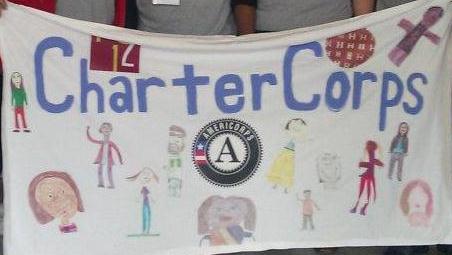by Leah
Checkmate!
This session during after school at ICS I am offering a chess class for anyone interested in capturing a king or two. I decided to do chess after our school director gave me a couple books on teaching it to kids, and honestly, there’s so much more to teaching chess than I thought. Apparently learning chess benefits students in countless ways – language, mathematics, patience, attention, planning ahead, spatial skills, even social skills. Who knew chess was even more awesome than we all thought it was before?
My class is made up of all boys in K-5th grade; some of them came in knowing nothing about chess, and some were old pros (and very impressive ones at that!). We started class by introducing each piece and reviewing how to set up the board within ranks and files. Did you know that the pieces in chess (as well as their moves) are based on real-life characters? There’s a lot of tricks to learning chess, such as remembering that a pawn (kind of like a little soldier) attacks at the diagonal because in battle the soldiers would swipe their enemies at an angle rather than straight on. Similarly, the diagonal slant in the bishop’s hat or the horizontal and vertical cross in the rook’s top gives clues as to how those pieces move. These hints definitely help out when trying to remember the moves.
A challenge that I’ve had in this class is trying to engage the kindergarteners, who are particularly impulsive when they have a board full of pieces in front of them. Kindergarteners are old enough to understand the game (something I didn’t believe before researching more about chess), and I have a 6-year old who could probably beat me. However, there have been other students who struggle with the rules, so I have been pairing them up with older students to reinforce the strategies we learn during the lessons. I’m hoping to get the kindergarteners on board even more in the last few weeks of chess!
Teaching chess has opened my eyes this year to incorporating games into school in order to build social and academic skills. And really, who doesn’t love games? In the book I have been reading “Teaching Chess”, the author pushes for a chess curriculum in schools, and there’s a lot of research out there that suggests it will be beneficial. For now, I am glad to introduce a love of chess in after school in order to spread that enthusiasm around a bit more. I hope this old school game can make a comeback in the years to come!

No comments:
Post a Comment